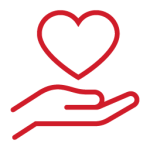We are dedicated to changing the future through ALS research. With your support we can accelerate these discoveries and develop new treatments, therapies and cures.

Donate Online
By making a charitable contribution to the ALS Research Support Fund, you are playing a critical role in driving medical breakthroughs. The new therapeutic methods being developed in the Miller Lab not only benefit ALS, but are also paving the way for similar therapeutic strategies in many other neurodegenerative diseases, such as Huntington’s disease, SMA, and Duchenne muscular dystrophy.
For more information, please contact Emily Williams at 314-935-2660.

Donate by Mail
Print and fill out gift form (PDF)
Mail to:
Washington University in St. Louis
Office of Medical Advancement
MSC 1247
Attn: Emily Williams
7425 Forsyth Blvd.
St. Louis, MO 63105

Human Tissue
Scientific research of most diseases, including ALS, depends on the direct study of human tissues that have been affected by the disease. These tissues are generously donated by patients who are willing to undergo autopsies after their deaths.
- Notify the Neuromuscular Office at 314-362-6981 of your wishes.
- Supply patient’s name, date of birth, and phone numbers where the next-of-kin can be reached.
- Follow prompts to initiate research autopsy.
Organize A Community Fundraising Event
Join with your family members, friends, or colleagues to make a difference! Whether you have a personal connection to a particular disease, or want to honor or pay tribute to a loved one, community fundraising events make an impact in raising awareness and supporting innovation in research, patient care programs, and education in the the ALS Center and Miller Lab at Washington University School of Medicine.
To organize a fundraising event or initiative to benefit the ALS Center at Washington University School of Medicine, please complete our online form or contact medicaladvancement@wustl.edu or 314-935-2993.
Supporters Include:
- Lyle Rakers Foundation
- ALS Association
- ALS Finding a Cure
- Association for Frontotemporal Degeneration (AFTD)
- Biogen
- The Hobler Family
- Hope Center for Neurological Disorders at Washington University
- Hope Happens
- Ionis Pharmaceuticals
- Muscular Dystrophy Association
- National Institutes of Health, NINDS
- Project 5 for ALS
- University of Missouri Spinal Cord Injury Center
Please accept our sincere Thank You for your contribution to the ALS Research Support Fund. Your thoughtful contribution enables us to continue researching possible treatments and ultimately cures for neurodegenerative diseases.